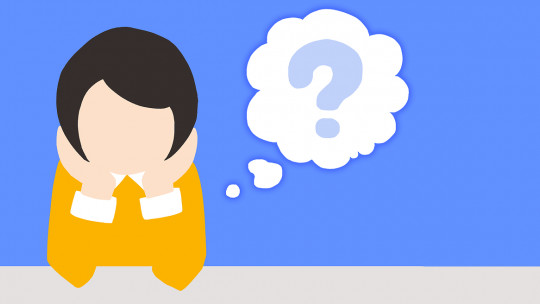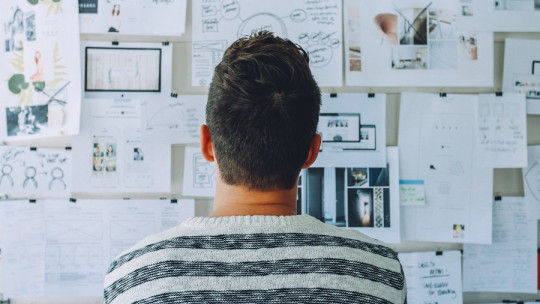
It goes without saying how difficult it is to make some decisions in life The complexity of each decision to be resolved generally has to do with the implications of the results, that is, what could be the consequences that will come when we say “yes” or “no” to something that is presented to us.
The more options we have about a conflict that requires our active participation, paradoxically, the more difficult it will be how we deal with it. It is for this reason that accumulating information in this regard in exchange for mitigating the anguish and uncertainty to which we are subjected, will only add complications, therefore, when it comes to gathering information, it is advisable that we be selective with the information. same.
The word decide carries within it I will decidewhich could be understood as “from”, and fallen, as “cut”. To put it simply, although there is nothing simple about it, deciding is neither more nor less than choosing between different options, it is giving a cut to a situation that is presented to us. Again, To decide is to find a way out of a problem that lies ahead of us and that imposes an option a choice or finding a specific course of action among different available alternatives.
Uncertainty and decision making: how are they related?
Uncertainty, that is, the reason for our anxiety, that which does not let us sleep at night until we resolve it, is the almost visceral feeling that we face when making decisions, which is nothing more than the inherent condition of being alive
We take refuge in our own or other people’s information about what has happened before accepting or rejecting any option that is presented to us. Clearly, we are not certain what the outcome will be and that is precisely why we talk about decisions.
We believe that uncertainty is solved by accumulating information in relation to the issue we must resolve, but in reality so much knowledge and information only disturbs us. Excess information and opinions increase the uncertainty, stress and anxiety associated with decision making
It is difficult to evaluate the options without fear of making mistakes, but as in all things and without being optimistic, we can find a positive aspect, which is becoming highly creative to find a resolution to the problem.
What does our ability to make decisions depend on?
We must understand that decision-making is influenced by the personal, social, cultural and political context in which we are immersed. A decision today may not be the right one when time has passed. That is what we mean when we say that they are influenced by the context that we find ourselves in at the time of each arbitration, but this is a circumstance that we cannot consider at that moment because it is beyond us to know how the values will vary and culture, years later.
The unpredictability of the future and the lack of experience on the subject make us look for sometimes easy and even magical solutions. We invoke all knowledge and we do not stop hearing all the voices that arise so that, consciously or unconsciously, something makes us leave such an uncomfortable place When we decide we are taking a risk.
Medical decisions, employment decisions, choosing a career, purchasing a property or large investments, among others, are situations in which we find ourselves throughout our lives. On another scale are those tinged with loving feelings such as choosing or continuing with a partner or having children, for example, that is, we are constantly subjected to having to make decisions from the most committed to the simplest.
And it is necessary to know ourselves and recognize our way of acting and thinking in the face of this conflict that is presented to us because this will help us correct small distortions and that will teach us about ourselves. That is to say, Every obstacle that appears to us acquires an asset value if we know how to take advantage of it
How to improve our ability to decide?
In “The Transformation of the Modern Mind,” Jonathan Haid and Greg Lukianoff address the historical and philosophical development of the human mind and how our understanding of cognition in decision making has evolved. The authors explain that Decision making is understood as a complex cognitive process that involves the evaluation and comparison of multiple options the consideration of long-term consequences and the application of logical and rational principles to arrive at an informed choice.
We should not leave aside emotional factors and our cognitive state when making decisions, understanding that uncertainty and time pressure are added to these factors. We must keep in mind that there are strictly no good or bad decisions, since we will always know that after we have made them.
Faced with these vicissitudes, our human nature imposes on us a healthy cognitive state and that refers to being emotionally balanced to carry out the task, that is, maintaining calm and mental clarity is one of the requirements. If for some reason or because of the type of decision to be made we are not in that state, seeking help to clarify our ideas would be part of the solution since starting from humility in the face of the difficulty of conflict prepares us in a more sensible way to face it. to our abilities, feelings and resources.
Another interesting point is that The decision to be made must be consistent with the values that correspond to that moment That is, they are aligned with our way of thinking and feeling. This will mean that when the decision made is evaluated later in time, we will be able to think that based on the moment we experienced and with the tools we had, we did the best we could. This does not imply repentance, but rather the recognition of growth in ourselves and of course learning.

Being faithful to ourselves is a positive quality and will be a condition for the evaluation of the problem. Another thing to keep in mind is to put aside inflexibility and allow ourselves to listen to options from qualified people. That will give us a greater chance of success in resolution. Believing that there is only one way to solve things will only make us believe that if we become more flexible we are losing, and this does not necessarily turn out to be the case, but rather it is the best solution for that moment, evaluating risks and damages greater than staying firm and closed against possible mistakes.
Psychological theories suggest that fear of death may be related to loss of control and uncertainty about what will happen after death. If we understand a decision as a limit we are not far from being exposed to those feelings
From this perspective, procrastination can be seen as a form of avoidance of death anxiety. Making important decisions can cause anxiety and stress, especially if it involves a significant change in a person’s life. In some cases, people may postpone making a decision to avoid facing this anxiety of the limit and therefore of the irreversible, as if it were a small death.
By putting off making decisions, a person may feel like they have more time and thus avoid thinking about the fact that life is limited.; So, although it may be difficult, let’s make decisions with confidence, knowing that we are learning and growing in the process.
Finally, it is important to remember that making decisions can also be an opportunity to grow and develop as individuals Through living this process we can learn to trust our intuition and develop confidence in our abilities. Therefore, a recommendation is that we teach our children from a young age to decide between different alternatives (obviously, those corresponding to their age).
It is necessary to keep in mind that, in the case of children, the options that we will suggest have to be few (two or three, no more), since at the moment of their development it is not advisable to distress them with several alternatives. In this way, learning with the people who love us becomes not only valuable in itself, but we generate confidence in the process of facing the decision and its consequences, which most of the time are not irreversible.








